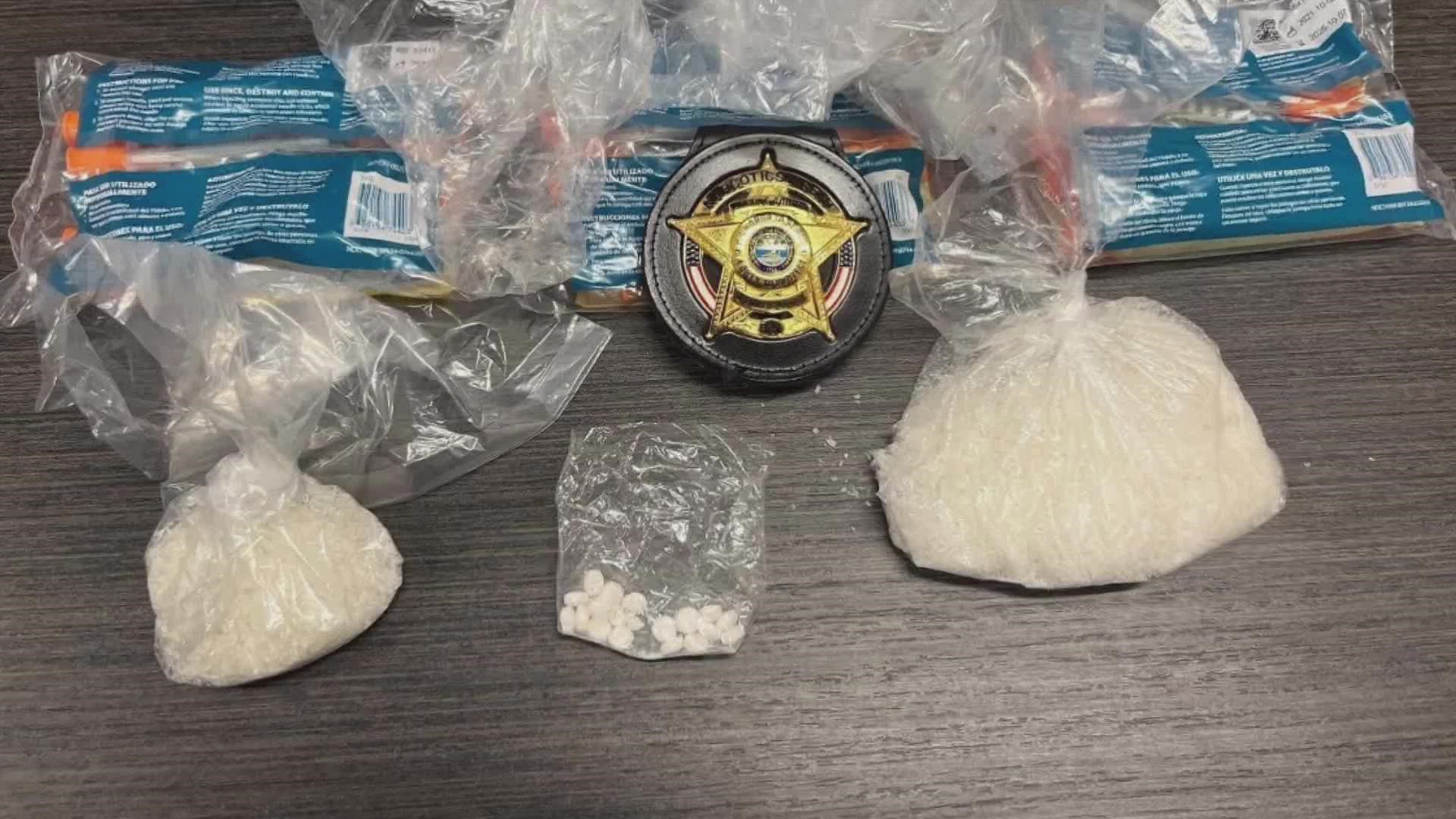MONROE COUNTY, Tenn. — Monroe County Sheriff Tommy Jones is cracking down on illegal drugs as his number one priority. Step one— getting them off the street. To do that, he’s expanding a drug task force.
"That's kind of my passion as sheriff. We can link most of every crime that we have back to narcotics,” Jones said.
In the last few months, narcotics detectives made nearly 50 drug arrests and most recently seized a $28,000 dollar bag of meth. Detectives said most drugs are coming in from bigger cities like Knoxville.
"Our focus has to be in that direction so hopefully by all the drug busts you see you will start seeing a reduction of crime as a whole across the county," Jones said. "We've already seen an increase in arrests, on seizures in just a few months in.”
Fentanyl and heroin are among the top concerns. Investigators said they are seeing these two drugs often mixed.
"A lot of our guys are buying heroin from dealers that are cutting it with fentanyl. As we know, none of these guys are chemists, so they don't know what they're doing and we're afraid that's going to continue if we don't get ahold of the fentanyl and the heroin," Jones said.
The Monroe County Sheriff’s Department said in the past three months there have been 19 suspected overdoses and two suspected overdose deaths.
Detective Conway Mason worked drug investigations until 2014. He says when it comes to drugs, things have taken a turn for the worst.
"Back then it was prescription medication, cocaine things like that," he said. "If you got a half ounce. Now, a half ounce isn't a lot because it's being imported.”
On the surface, meth looks like the biggest threat to Tennesseans, Mason said. That's because they see a lot of it, but it's not the only threat. It’s fentanyl and heroin causing most of the overdose deaths, Mason said.
Detective Dalton Rinehart has been working in narcotics investigations for five years. Since becoming a new father, his drive to get drugs off the street has shifted into more of a passion.
"Take out the drug dealers as we get them," Rinehart said. "I want to remember that I actually tried to make a difference and tried to keep kids from getting on this stuff.”
Sheriff Jones said the biggest obstacle they face is mental health resources, saying 20% of inmates at the Monroe County Justice Center belong in a mental health institution and not in jail.
"The problem is they need treatment and they're not getting it. That's a battle for us," Jones said.

